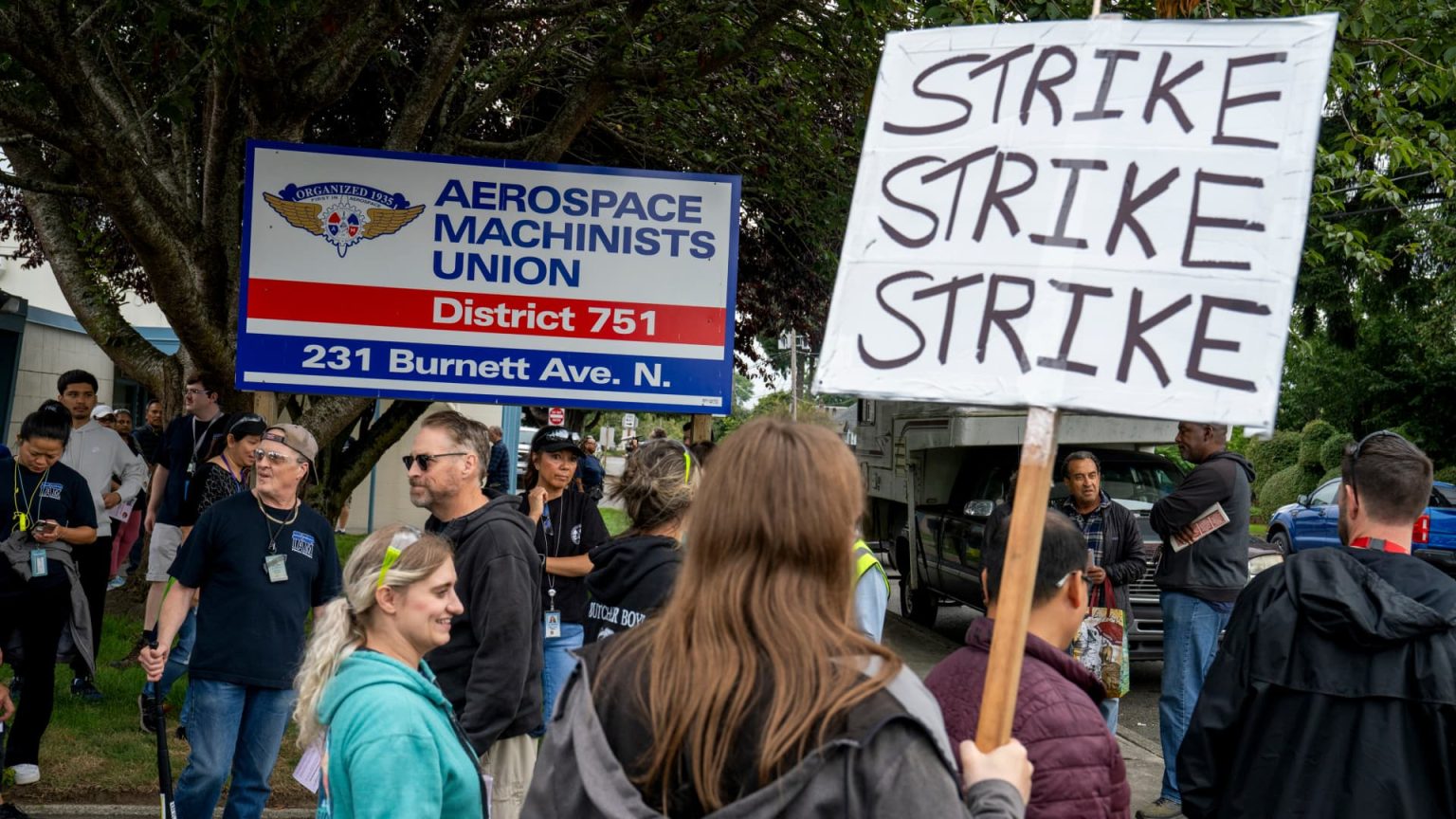More than 30,000 Boeing workers were prepared to go on strike after rejecting a new labor contract by an overwhelming majority. This move would halt production of most of the company’s aircraft, which is a costly setback for the manufacturer that has been struggling to increase production and rebuild its reputation following safety scandals. The workers in the Seattle area and in Oregon voted against the tentative agreement and for a strike, citing concerns about discriminatory conduct and inadequate benefits. The IAM District 751 President announced the strike would begin at midnight, emphasizing the need for Boeing to negotiate in good faith.
The rejected proposal included a 25% wage increase and improvements to health-care and retirement benefits, although the union had been seeking higher raises. Workers were dissatisfied with the agreement, stating that it did not adequately account for the rising cost of living. This outcome is disappointing for CEO Kelly Ortberg, who had urged employees to accept the contract in order to avoid a strike and protect the company’s recovery efforts. The financial impact of the strike is uncertain, but analysts estimate it could potentially cost Boeing billions of dollars and disrupt the company’s suppliers and supply chains.
Jefferies aerospace analyst Sheila Kahyaoglu projected a 30-day strike could result in a $1.5 billion hit for Boeing, on top of the estimated $900 million annual impact of the rejected agreement. Boeing has faced challenges this year, burning through billions of dollars and accumulating debt. Production has fallen short of expectations due to manufacturing defects and industry-wide issues such as supply and labor shortages. Additionally, a high-profile incident involving a Boeing 737 Max 9 earlier in the year has increased federal scrutiny of the company’s production practices.
The strike represents a significant setback for Boeing, which is already grappling with financial strains and operational challenges. The company’s reputation has been tarnished by safety concerns and production issues, making a prolonged work stoppage all the more damaging. The decision to strike reflects a broader frustration among workers over compensation and working conditions, highlighting the ongoing tension between labor and management at Boeing. It remains to be seen how the company will navigate this latest crisis and whether it will be able to address the concerns raised by its employees.
The outcome of the strike could have far-reaching consequences for Boeing, its workers, and the broader aerospace industry. The company’s ability to quickly resolve the labor dispute and resume production will be critical in determining its financial health and reputation moving forward. In the meantime, suppliers and other stakeholders will be closely watching the situation to assess the potential impact on their own operations. The strike serves as a reminder of the complex challenges facing Boeing and the need for effective communication and negotiation between management and labor to ensure the company’s long-term success.


